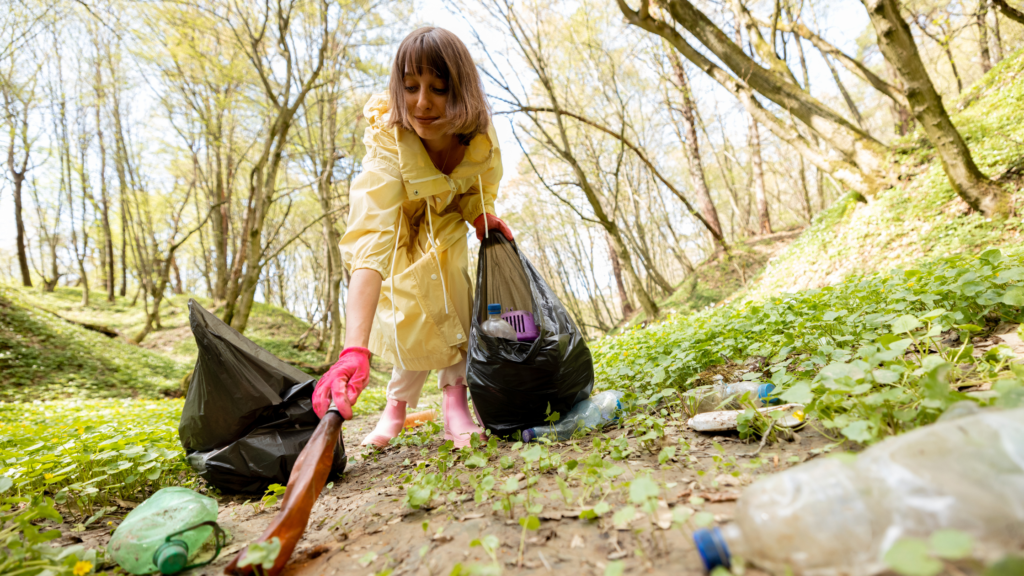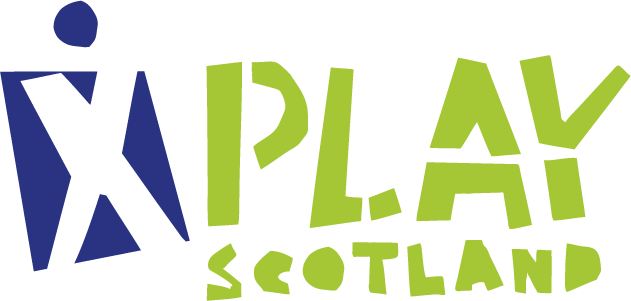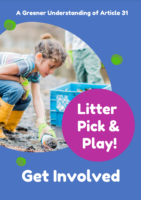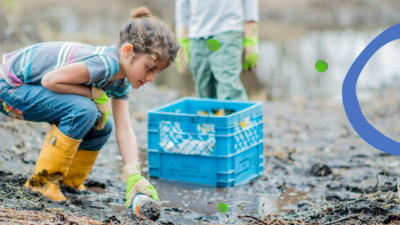
Children have a right to play under the UN Convention on the Rights of the Child.
However, many children face significant barriers in realising this right.
From natural disasters to everyday issues, public spaces are often unwelcoming and unsafe for children to play in. Children who are already disadvantaged by disability, poverty, and other factors, are disproportionately affected by the environment.
Play Scotland, in association with IPA Scotland, organised the Greener Understanding of Article 31: Litter Pick & Play Project.
The project asked groups across Scotland and around the world to get involved organising Litter Pick & Play sessions in their local area. The project aimed to empower children and young people to stand up for their right to clean and safe places to play and to encourage adults to uphold the responsibility to provide them.
Where did the idea come from?
The project was developed and took inspiration from various consultations and projects with children and young people including:
- Under the Same Sky
- Moths to a Flame
- NPF4 (Draft) Consultation
- OSS & PSA Consultation
Each of these projects highlighted the concern children have for their local spaces. Themes of litter, waste, and anxiety around the climate crisis emerged.
What we did
We created a toolkit to guide groups step by step how to plan their event.
This included tips on how to make it playful, such as
Create a scavenger hunt – make a list of different types of rubbish and tick them off as you find it. Why not display it as pictures instead of words so everyone can see what they are looking for? Try our template worksheet or make your own!
We planned a litter pick and play in Edinburgh to make a how to film.
We partnered with Keep Scotland Beautiful to share our message and we presented at a live lesson to over 40 schools.
We ran 3 online “How to Get Involved Events” for 20 practitioners working with over 900 children.
100% of participants would recommend the event and one said “full of information and inspiration” “Jenny was so enthusiastic”
What was the outcome?
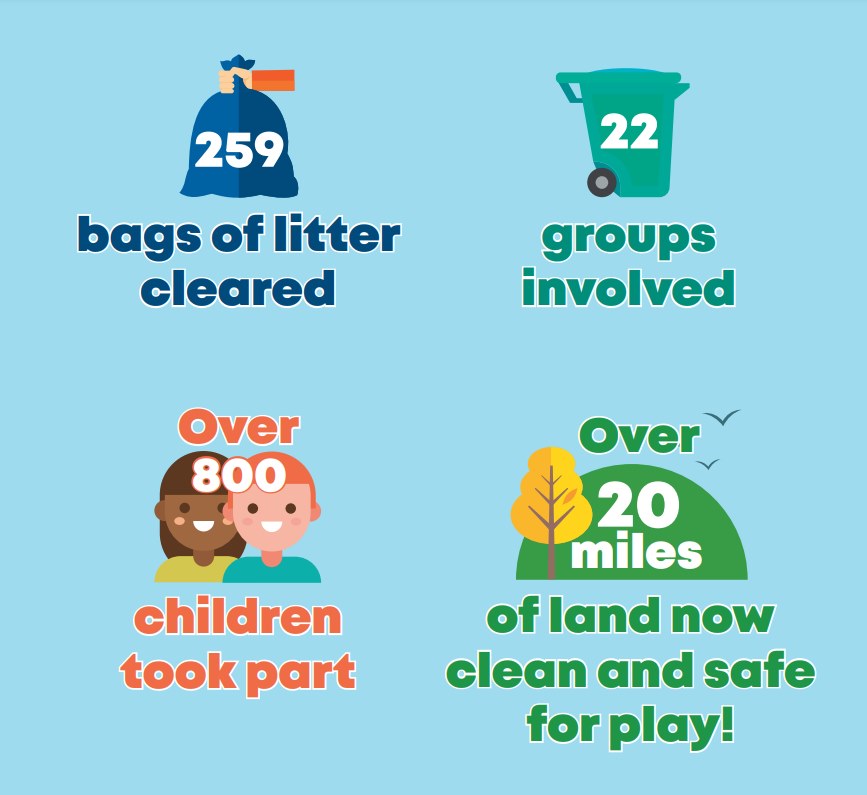
We supported 22 groups across Scotland including over 800 children to clear over 250 bags of litter from 20 miles of land!
100% of children said they were more likely to play in the space they cleaned
We worked with St Mirin’s Out of School Care and supported them to create an art installation responding to the project.
We ran a prize draw for the groups in Scotland and awarded £100 to Newmains Primary, Renfrew.
We supported IPA India, IPA Nigeria, and IPA USA to run litter pick and play events.
We collected feedback from children across the world who took part.
And to hear from the children involved:
- “The park was disgusting”
- “I’m proud to help clean”
- “After we’d cleaned it up we played on the pitch with a ball we found.”
- “We’re eco warriors”
- “It is sad that we work so hard and it still gets littered”
- “We want to keep it tidy”
- “We don’t want our playground to be dirty.”
- “It is nice to have fresh air outside.”
- “We don’t want the playground filled with rubbish”
- “Let’s keep our outdoor spaces clean for everybody to enjoy.”
- “Pick up your litter and stop vaping!”
- “I want to play in a clean park”
- “I wouldn’t want to play in a dirty park, it is not safe”
- “We had lots of fun doing it but we want everyone to put their litter in the bin.”
- “Our message to adults is: PUT IT IN THE BIN!”
We hosted a participation session at IPA Glasgow 2023 where we heard from St Mirin’s, IPA Nigeria, IPA India and IPA USA about the project.
We created 3 roller banners to display our case studies and all the information from the project.
We set up the full exhibition including the roller banners and the art installation at the conference.
We created a guidebook for the exhibition which you can view here: https://bit.ly/3oJzKzd
We partnered with the Lord Provost of Glasgow to install the exhibition at Glasgow City Chambers following the conference.
A Big Thank You To All The Groups Involved
This was a global project, and everyone was invited to take part if they:
- work with children and young people
- volunteers with children and young people
- Parents, carers, and other family
- Community groups & neighborhoods
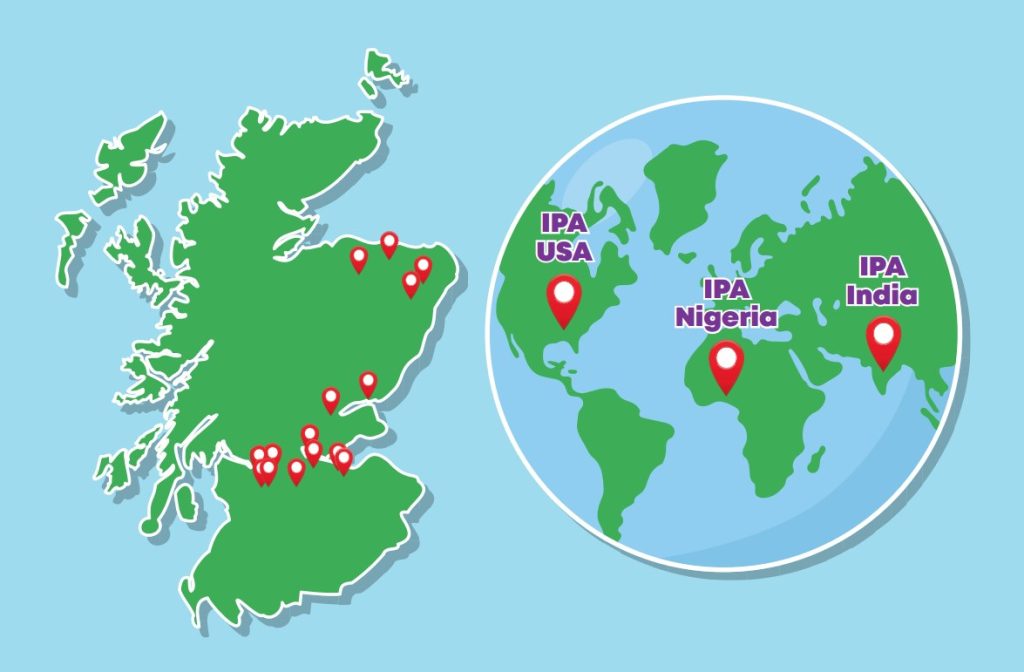
Global Locations
IPA India – Parimal Garden, Chimanlal Girdharlal Rd, Panchavati Society, Ambawadi, Ahmedabad, Gujarat 380006, India
IPA Nigeria – 1 Christ Chapel street, Ashi-Bodija Ibadan, Nigeria
IPA USA – Gateway Harbour, Tonawanda, New York
Scotland groups
Thanks for organising Litter Pick & Play events: 86th Glasgow Boys’ Brigade & 28th Giffnock Scouts, A Protagonist in Every Child, Belmont House Nursery, COT Neighbours United, Graceful Oaks Nursery And Primary School, Grove Academy, Gylemuir Primary School, Methlick School, Newmains Primary, Ordiquhill Primary School, Perth Autism Support, Saint Martha’s Primary, St Brigid’s Primary School, The Black Door Shop, The Cabin Nursery, Tulliallan Primary School, and Whitecross Primary School.
And a special thanks to St Mirin’s Out of School Care Group for providing their sculpture of the Glasgow City Crest for the exhibition.
Case Study: Parimal Garden, Gujarat, India
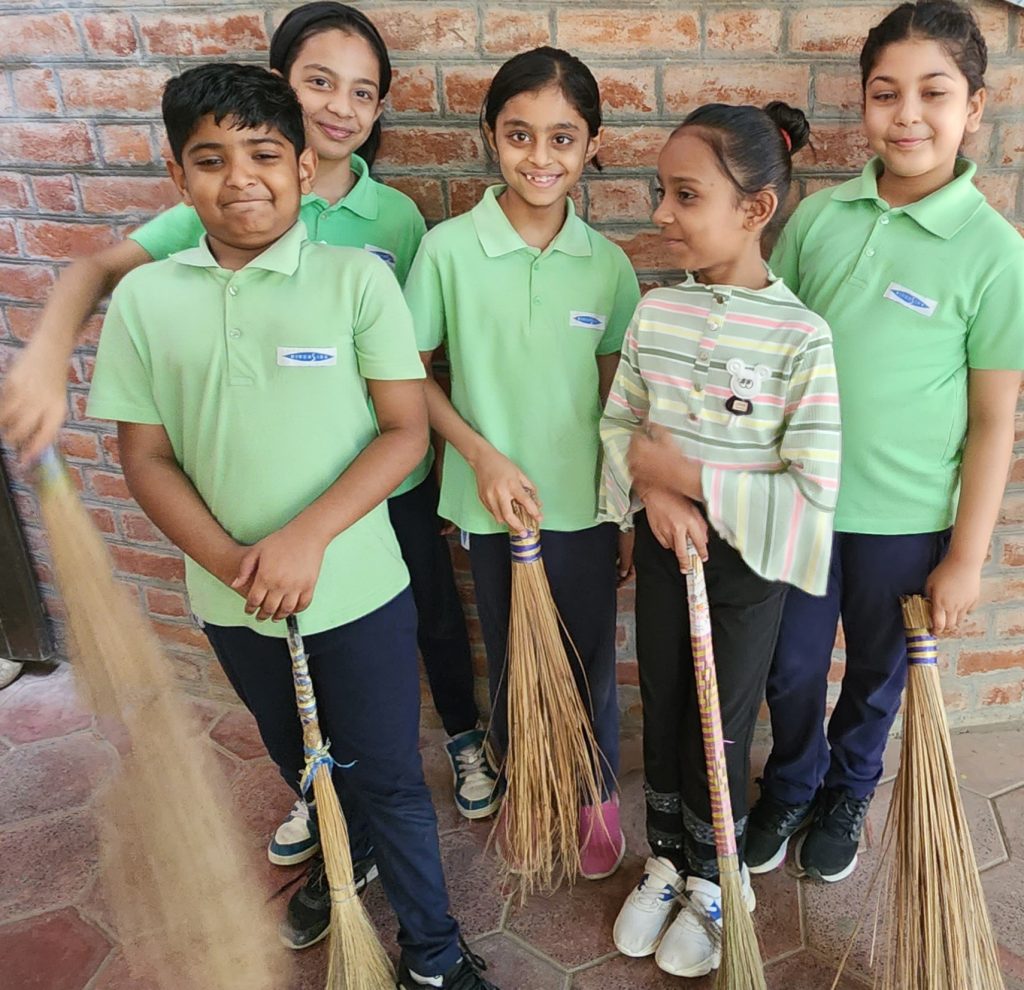 We transformed a dull place, full of litter, into a green and playful space.
We transformed a dull place, full of litter, into a green and playful space.
Children visited the Parimal garden often and in one of the visits they looked around the park and a corner place caught their attention. The corner was at a prominent location, facing the main road, adjunct to park but was used as a dump yard. It smelled bad and according to the children, that needed to change.
First, they conducted a survey to know what would make the place more appealing and attractive. 98% of respondents said that the walls should be natural and represent nature. So the children set a goal to make this place a beautiful greener nature wall. They visited groups in different places in the city to get ideas and met experts to understand the process. They prepared a proposal and met with the Municipal Commissioner and got approval. They cleared the space of litter and created a nature wall. They decorated old plastic bottles and filled them with soil and planted nursery plants. The bottles were then displayed in the space. The project aimed to make the space beautiful, to reduce litter, and to make it community and child friendly.
Case Study: Graceful Oaks Nursery & Primary School, Ibadan, Nigeria
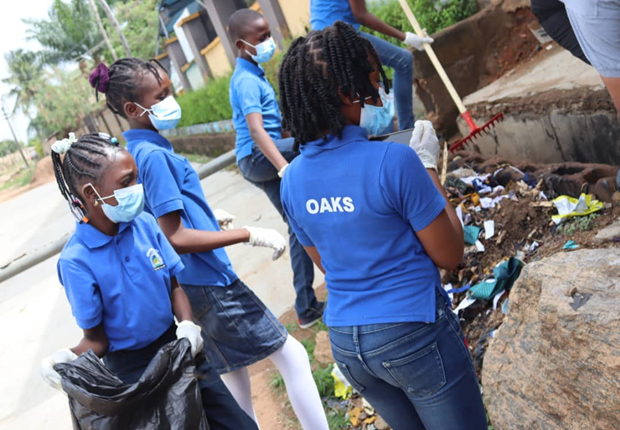
We cleaned up our school and the local area. In attendance we had 12 children and 10 adults. A total number of six waste bags were collected. We talked to the children about their rights to play according to section 31 of the rights of a child. After cleaning, we had time to play and had little refreshments in a clean environment. We played local and traditional games like Ayoayo. I am so grateful for this awesome time with the adults and children, who made our school environment clean. The children said “We have the right to play, and we don’t have to wait for anybody to tell us to play, I am happy we had a good experience picking litter”, “I felt so good to be able to clean my environment and to be able to play in a clean place, I am feeling very excited to play here”
Case Study: Gateway Harbour, Tonawanda, New York
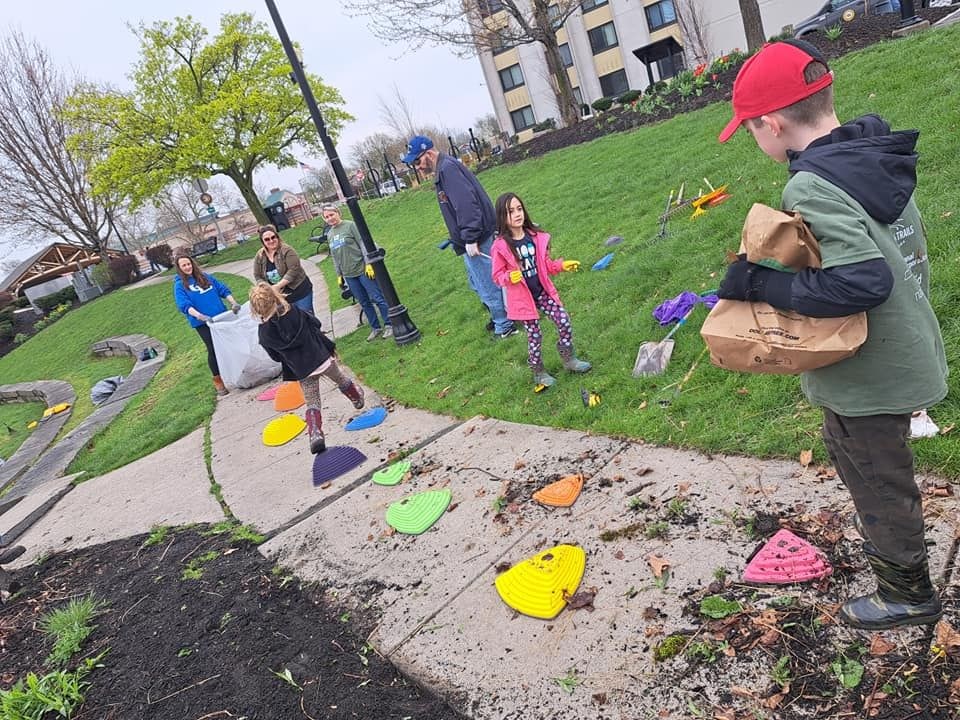
We collected 20 bags of trash
We of course played while cleaning!
We played the Floor is Lava, Garbage Bucket Relay, and Garbage Tag. The children created gorgeous coloured paths along the stonework. We all laughed, played, and took care of the earth.
Taking part in the litter pick sparked the desire to use the space in many children. Specifically, they saw a man fishing, so they decided they wanted to fish!
We had politicians, city employees, community groups, and residents all taking part. People just walking by stopped to join in. We look forward to doing it again!
Case Study: Newmains Primary, Renfrew, Scotland
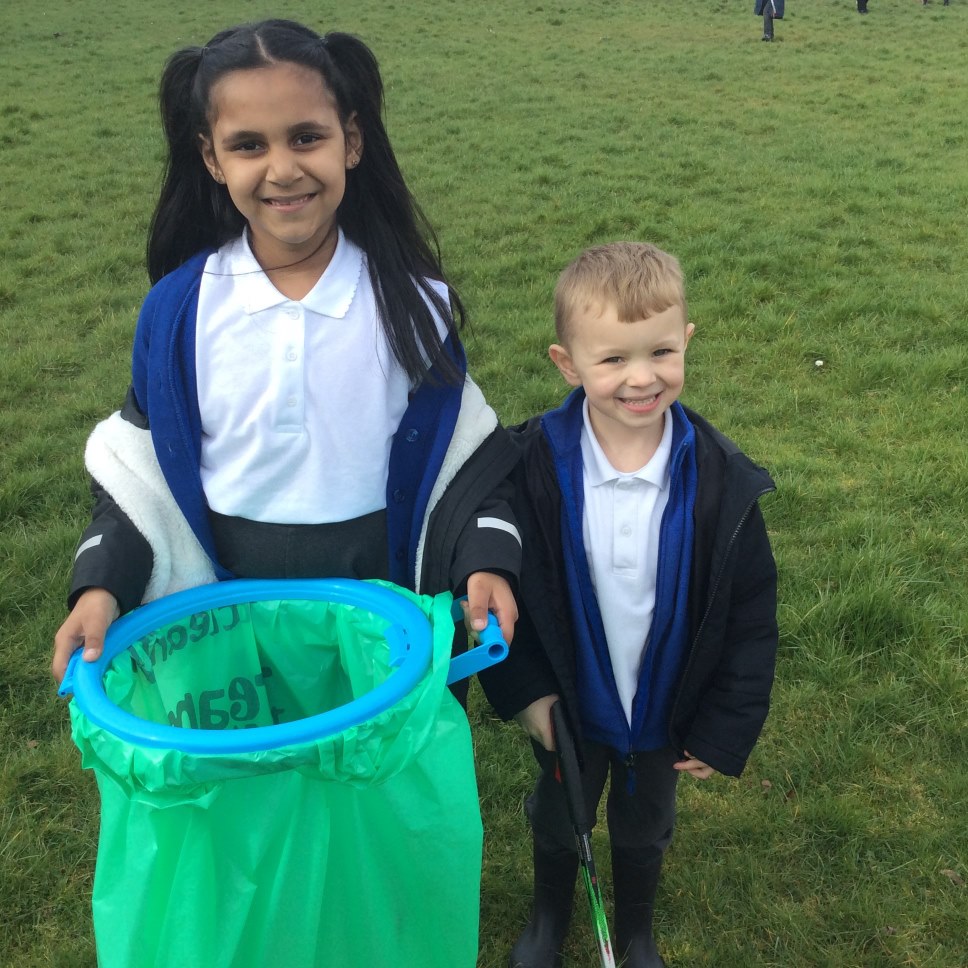
We cleaned up our local space. We had 10 adults supporting 23 children to make the space safe for play. We spent an hour picking rubbish and collected 10 bags of rubbish.
“I thought this would be long enough for a P2.1 class, however they were so engrossed in the task we could have had more time.”
We got help from Renfrewshire ‘Team Up To Clean Up’. A member of ‘Team Up to Clean Up’ came into school and spoke to the children about litter. They also gave us litter picking equipment to use.
It was a great activity to take part in community involvement and highlighting the importance of looking after our community spaces.
The children said: “It is sad that we work so hard and it still gets littered. We want to keep it tidy. We don’t want our playground to be dirty. Litter isn’t good for the animals so we should try to keep it clean. People should stop spitting out chewing gum. We don’t want the playground filled with rubbish. I liked picking up the rubbish.”
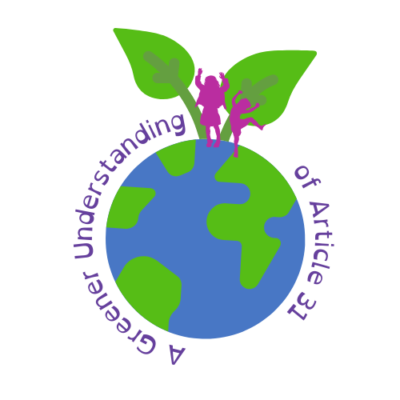
Children’s rights & the Environment
Playing in natural environments positively impacts on children’s sense of well-being, fitness levels, resilience, cognitive functioning and motor ability (Bird 2007; Pretty et al 2007, Lester and Russell 2008, Muñoz, S.-A. 2009, Keniger et al 2013, Gill, 2014, Söderström et al 2013).
By playing in nature, children come to understand, appreciate and care for the natural world – it encourages “stewardship for the earth.” (IPA World, 2016)
Children across the world are determined, resourceful, and creative when finding opportunities for play. However, many children face significant barriers in realising their right to play (IPA World, 2016).
The global climate crisis is having a huge impact on play. The pollution of air, water, and space is increasing and this affects the safety of children at play. In emergency situations following natural disasters and other crisis, play is often given lower priority than the provision of food, shelter and medicines. However, play is one of the ways that children cope with a crisis in any context. Play hones innate skills and helps children to come to terms with what has happened (Fearn and Howard, 2012).
Everyday environments also impact play. Planning decisions on pavement widths, provision of outdoor space, rubbish removal, and even “No Ball Games” signs can have huge impacts on the quality and quantity of play available to children.
Children are likely to be disproportionately affected by environmental constraints on their enjoyment of their right to play if they live in:
- Poor or hazardous environments
- Poverty
- Situations of conflict or humanitarian disaster
- Rural communities
- In street situations
Or if they are:
- Asylum-seekers and refugees
- Disabled
- Chronically hospitalised children
- Migrants or internally displaced
(IPA World, 2016).
